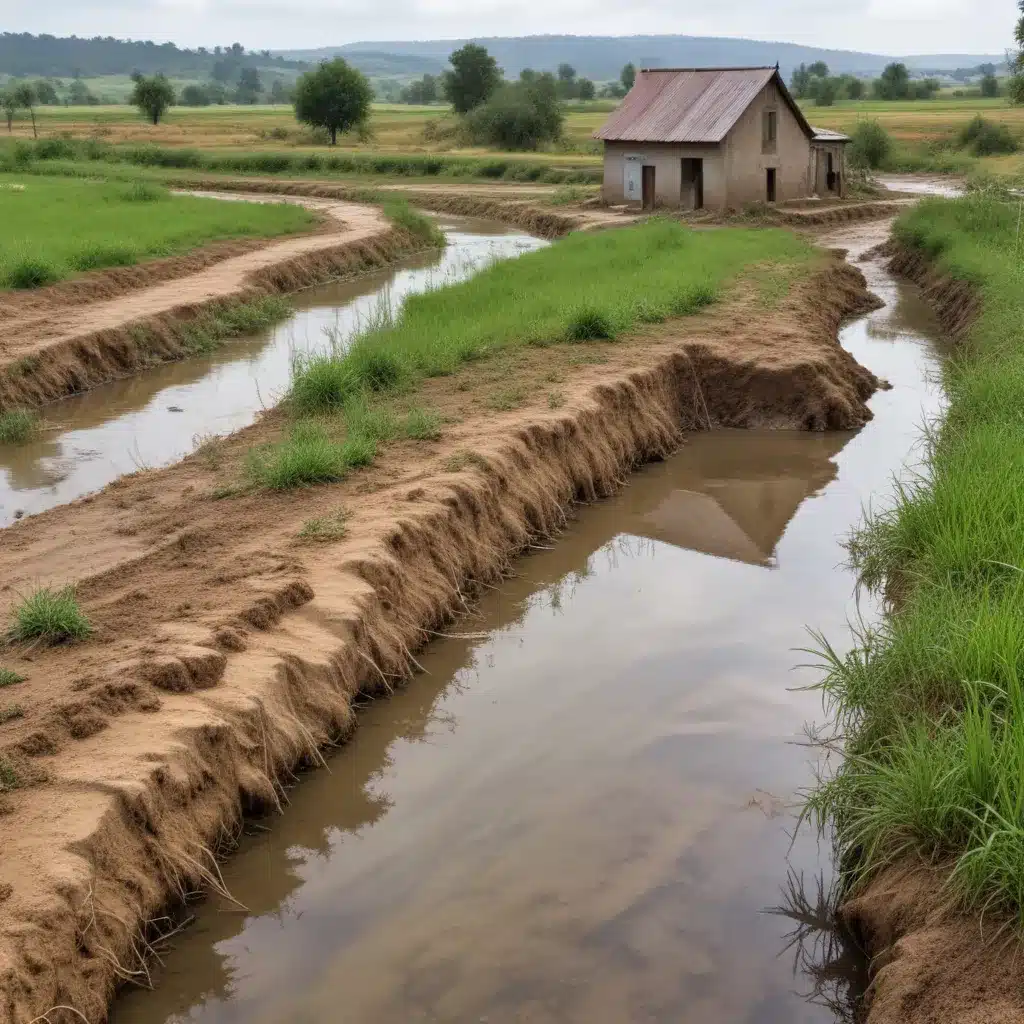
The Crucial Role of Groundwater in Building Resilient Communities
As the world grapples with the escalating impacts of climate change, the importance of strengthening groundwater governance has never been more critical. Groundwater, the hidden resource that sustains ecosystems and communities globally, holds the key to enhancing climate adaptation and building resilience.
Across many regions, erratic rainfall patterns, prolonged droughts, and the depletion of surface water sources have made communities increasingly dependent on groundwater. However, the invisibility and complex nature of this precious resource have often led to its mismanagement, jeopardizing the very lifelines that communities rely on.
To address this pressing challenge, a holistic and collaborative approach to groundwater governance is essential. By empowering local communities, leveraging indigenous knowledge, and fostering multi-stakeholder partnerships, we can unlock the transformative potential of groundwater to support sustainable development, food security, and climate resilience.
Understanding the Groundwater Challenge
The impacts of climate change on water resources are evident worldwide, with vulnerable communities bearing the brunt of these challenges. In Zimbabwe’s Binga and Buhera districts, for example, erratic rainfall and poor water management practices have led to the drying up of water sources during the dry season, creating significant hardships for women and girls who must walk long distances to fetch water. This, in turn, disrupts educational opportunities and limits the productivity of critical agricultural and livestock systems.
Similar scenarios play out in many other parts of the world, where the failure of surface water sources, such as rivers and lakes, has forced communities to increasingly rely on groundwater. However, the invisibility of this resource and the lack of comprehensive data often hinder effective management and protection.
Strengthening Groundwater Governance: A Holistic Approach
Addressing the groundwater challenge requires a multi-faceted approach that encompasses institutional reforms, resource characterization, knowledge generation, and capacity development at both national and local levels. This holistic strategy can help communities navigate the complexities of groundwater management and harness its potential for climate adaptation and resilience.
Institutional Reforms and Enabling Frameworks
Effective groundwater governance begins with the establishment of robust institutional frameworks and policies that prioritize sustainable groundwater management. This includes:
- Developing national groundwater policies and regulations that integrate climate change adaptation strategies
- Promoting decentralized decision-making and empowering local authorities to manage groundwater resources
- Fostering collaborative partnerships between government agencies, civil society organizations, and local communities
By strengthening these institutional foundations, communities can navigate the complex landscape of groundwater governance and ensure that local needs and priorities are adequately addressed.
Groundwater Resource Characterization and Monitoring
Accurate knowledge of groundwater resources is essential for informed decision-making and sustainable management. Initiatives aimed at mapping, quantifying, and monitoring groundwater resources can provide critical insights, including:
- Conducting comprehensive groundwater assessments to understand the availability, quality, and recharge rates of aquifers
- Establishing groundwater monitoring networks and early warning systems to track changes and inform climate adaptation strategies
- Integrating traditional ecological knowledge with modern scientific data to develop a holistic understanding of groundwater systems
This evidence-based approach helps communities make informed choices about groundwater utilization and protection, ensuring resilience in the face of climate variability.
Knowledge Generation and Capacity Development
Empowering local communities with the knowledge and skills to manage groundwater resources is a vital component of strengthening groundwater governance. This can be achieved through:
- Investing in research and knowledge generation on sustainable groundwater management practices
- Implementing tailored training programs and technical assistance for community members, particularly women and youth
- Fostering knowledge-sharing platforms and multi-stakeholder dialogues to amplify best practices and lessons learned
By equipping communities with the necessary tools and capabilities, they can take ownership of groundwater management, adopt climate-smart technologies, and develop innovative solutions to adapt to changing climatic conditions.
Partnerships and Collaboration for Transformative Change
Strengthening groundwater governance for climate adaptation and resilience requires the collective efforts of diverse stakeholders. Fostering collaborative partnerships and cross-sectoral synergies can unlock transformative change, including:
- Engaging with indigenous communities to incorporate traditional ecological knowledge and strengthen community-based groundwater stewardship
- Collaborating with academic institutions, research organizations, and technical experts to generate evidence-based insights and innovative solutions
- Partnering with civil society organizations, non-governmental organizations, and community-based groups to amplify grassroots initiatives and ensure inclusive participation
- Coordinating with local and national governments to align policies, resources, and capacity-building efforts
By leveraging the expertise and perspectives of these diverse stakeholders, communities can develop context-specific strategies that address the unique challenges and opportunities within their local groundwater systems.
Pathways to Resilience: Groundwater-Centered Climate Adaptation
When communities are empowered to govern and manage their groundwater resources effectively, they can unlock a range of climate adaptation and resilience strategies, including:
- Sustainable groundwater-based irrigation systems that enhance food security and agricultural productivity
- Groundwater-fed livelihood diversification initiatives, such as beekeeping and small-scale livestock rearing, to strengthen economic resilience
- Groundwater-dependent ecosystem restoration and conservation efforts to safeguard critical natural resources
- Integrated water resource management approaches that prioritize the conjunctive use of surface water and groundwater
By placing groundwater at the center of their climate adaptation efforts, communities can build long-term resilience and secure their access to this vital resource in the face of mounting climate challenges.
Conclusion: A Future of Groundwater-Driven Resilience
As the world grapples with the escalating impacts of climate change, strengthening groundwater governance has emerged as a crucial strategy for building resilient communities. By adopting a holistic, collaborative approach that empowers local stakeholders, generates evidence-based insights, and fosters innovative partnerships, we can unlock the transformative potential of groundwater to support sustainable development, food security, and climate adaptation.
Through this collaborative effort, we can envision a future where groundwater-driven resilience becomes the foundation for thriving, climate-adaptive communities – a future where water security, environmental sustainability, and inclusive development converge to create a more resilient and equitable world. By embracing the power of groundwater governance, we can pave the way for a more sustainable and climate-resilient future for all.

